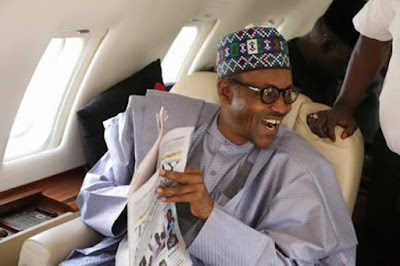By Moses E. Ochonu
INEC has declared the recent Rivers State
rerun election inconclusive. How many inconclusive elections have we had under
the new INEC chairman? How about all of them? I am not sure you can do your job
so shoddily as many times as this rookie has and still get to keep said job,
but he is new so I guess he deserves to make his mistakes and learn from them.
 |
| *President Buhari and Rotimi Amaechi |
The conduct of the election aside, how did we
get to a point where elections become wars of egos?
By the way, why did Rotimi Amaechi, a federal
minister who was not running in the Rivers re-run election, relocate the perks,
might, and intimidating aura of his office to his home state for an entire week
for the election? Why the inflammatory, reckless statements designed to
provoke, undermine, and challenge the authority of his successor?
Why the personal abuse of Wike (“Wike can’t speak English”)? Why the
thuggish behavior on the part of a federal minister (“I will flood Port Harcourt
with soldiers”)? And why the bizarre boast about controlling the army, a
boast so embarrassing the army had to issue a statement to refute it? What
about the puerile demand for Wike’s resignation, among other comments
unbecoming of a minister of the federal republic?
Quite frankly, Amaechi reflects terribly on President
Muhammadu Buhari (PMB).
As for Nyesome Wike, well, Wike is Wike, a
street politician given to gutter-sniping and uncouth outbursts. But he is
governor and Amaechi should respect and accept that. Amaechi is already well
compensated for helping to finance Buhari's campaign. Two of his political
children have been appointed MDs of NIMASA and NDDC respectively, in addition
to his own appointment as minister of transportation. In politics as in life,
you cannot have it all.
It is political greed to insist on upending
Wike by installing your stooges in the state assembly and as Rivers State's
legislative contingent in the national assembly. It's a petty, narcissistic
pursuit that is about personal ego and nothing more.
No wonder, even his former chief of staff, Tony
Okocha, an APC candidate who lost to his PDP opponent, has railed against
Amaechi's negative, counterproductive role in the election. He is right.
All politics is local, and if voters feel that
someone is leveraging the power derived from an external source to force a
particular political outcome locally, they often resist by voting in the other
direction.













